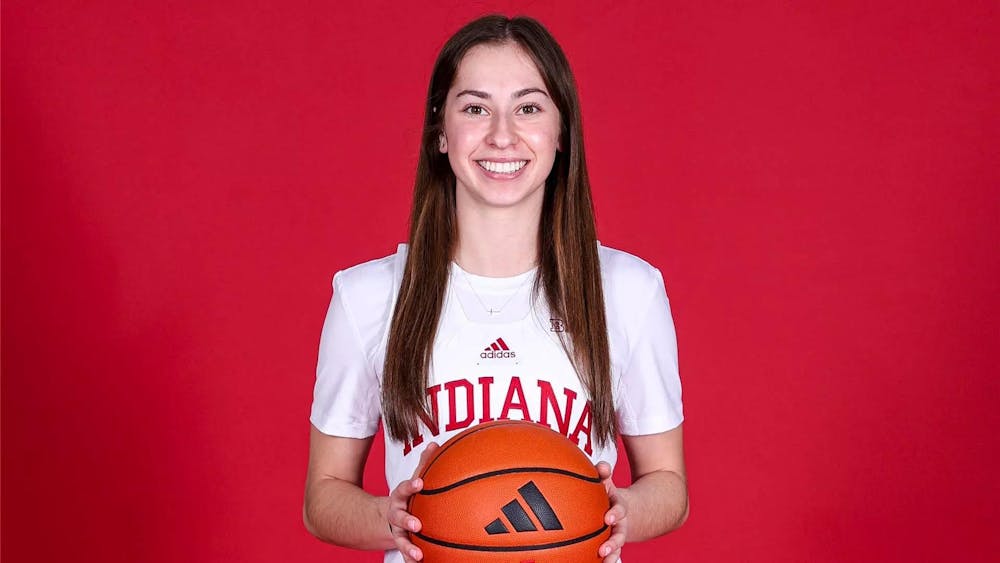Some in Bloomington might know Indiana State Excise Officer Travis Thickstun as the guy who busted them for underage drinking or using a fake ID, but to many law enforcement officials, businesses, schools and civic organizations statewide, Thickstun is known for his extensive work as an alcohol educator in his 23-county district.\nIt should come as no surprise, then, that the Indiana State Excise Police recently selected Thickstun for the Educator of the District and Educator of the State awards.\n“He’s been around the area a long time and he’s a very knowledgeable professional,” said IUPD Lt. Thomas Lee, who has worked with Thickstun on many occasions. “He’s certainly a police officer of the highest caliber.”\nThickstun, an IU alumnus and Bloomington resident, has been an excise officer in this district for six years. Much of his energy is spent leading educational programs on alcohol laws, drinking and fake IDs, but his job involves a mix of responsibilities that take him all around the district.\n“One day I’ll do inspections in the three-county area, or send someone who is not old enough to purchase alcohol into a store,” he said. “Every day is different for us. It just kind of depends on what’s going on and what the officers feel is the most useful way to spend their time.”\nThickstun said compared to other areas there’s a lot going on in Bloomington during the school year, but the town slows down when the students leave for the summer.\n“During school there is so much that could be done in a city like this that the work doesn’t end,” he said.\nAs part of the never-ending work, Thickstun leads a number of alcohol education programs in Bloomington, some of which are targeted specifically toward businesses. Thickstun said one of the biggest aspects of his job is teaching business employees how to spot fake IDs. In the two-hour program, Thickstun passes out fake IDs for employees to inspect and tells them what to look and feel for. Thickstun also educates employees on some of the current fake IDs being confiscated.\n“We go through things to look for, we look at examples of real IDs that people have tried to use and point out problems with them and we go around the room to share information,” Thickstun said. “I actually get good information from people that work day in and out checking IDs, so it’s helpful both ways because they’ll tell me what they’re seeing.”\nLee said the programs are beneficial, considering how fake IDs are becoming more difficult to spot.\n“In this day and age with the use of computer imagery and the fact that fake IDs are really good, law enforcement has advantage over commercial business in that we can actually have the wherewithal to run and check the validity of a driver’s license and see if the person is who they really say they are, and that’s something commercial establishments can’t do,” Lee said. “Some businesses are better than others at making that determination and I think certainly to their credit excise has attempted to help these establishments develop that ability.”\nBig Red Liquors employees take Thickstun’s education class twice a year. Big Red Director of Marketing Rob Williamson estimated that Big Red employees caught more than 100 students with fake IDs last year.\n“The program is very helpful,” Williamson said. “Travis does a great job in teaching our employees what to look for, and in return we catch a lot of fake IDs. It has become more difficult to spot fakes, but on the other hand we’ve become more vigilant about locating them.”\nWhile businesses and law enforcement may praise Thickstun’s work, excise police often get a bad rap with IU students.\n“I guess folks in general kind of believe that it can’t happen to them and it’s always something that will happen to someone else,” Lee said. “These education programs have great potential, depending on the audience, because they communicate the reality someone and hopefully more people will get the hint about using fake IDs without having to be introduced to the criminal justice system. It might save them some grief.”\nThough it’s difficult to prove how well these programs work without empirical data, Thickstun said the anecdotal evidence points to success.\n“You’ll see stacks of IDs at businesses that attended a class, which shows how many IDs are taken and quickly turned over to us,” he said.\nThickstun cited helping people understand how their job works and helping them to improve as the most rewarding aspect of his educator job.\n“I think there are some places that genuinely want to take steps to do better at identifying fake IDs,” Thickstun said. “And that has an impact and it does make a difference.”
Local excise officer honored for service
Get stories like this in your inbox
Subscribe





